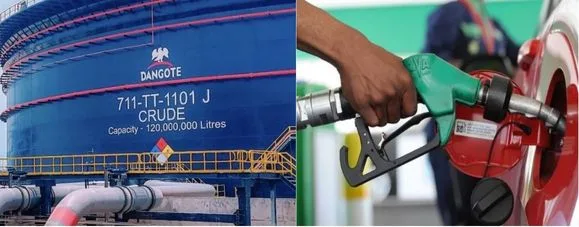Dangote Refinery: A New Chapter in Fuel Distribution
The Dangote Petroleum Refinery recently announced a significant agreement to supply the Independent Petroleum Marketers Association of Nigeria (IPMAN) with 60 million litres of petrol weekly. This development is being hailed as a game-changer for Nigeria’s energy sector, but questions remain about whether it will be enough to meet the nation’s needs.
The refinery, touted as the largest in Africa, is part of Nigeria’s push to reduce dependence on imported fuel. IPMAN’s National Publicity Secretary, Chinedu Ukadike, described the partnership as “a significant step forward,” explaining, “This deal will streamline fuel distribution by eliminating middlemen and allowing marketers to lift products directly.”
Join our WhatsApp ChannelCan 60 Million Litres Meet Nigeria’s Needs?
To understand the potential impact, it’s essential to consider Nigeria’s daily petrol consumption, estimated at around 60 million litres. While the Dangote Refinery’s output could cover a week’s supply, concerns have been raised about regional distribution and rising demand.
Olumide Adeshina, an energy economist, believes this is a step in the right direction but not a complete solution. “Sixty million litres weekly is commendable, but the real challenge lies in ensuring the petrol reaches every part of Nigeria efficiently,” he said.
For some Nigerians, this announcement has brought hope. Samuel Adeyemi, a taxi driver in Lagos, expressed optimism: “If the refinery starts supplying directly, it could lower prices. Right now, we spend too much on fuel.” However, others remain skeptical. Lagos-based entrepreneur Daniel Effiong said, “The question is not just about quantity but affordability. Will this make fuel cheaper for us?”
Experts Weigh In on the Deal
Energy consultant Dr. Nkiru Okoye believes the direct supply agreement is a milestone but points out that infrastructural challenges might limit its impact. “The refinery’s capacity is impressive, but Nigeria’s distribution network needs significant upgrades to avoid bottlenecks,” she noted.
READ ALSO: Dangote Refinery Partners With Marketers For Weekly Supply Of 60 Million Litres Of Petrol
Similarly, logistics expert Emmanuel Ajibade emphasised the importance of decentralising distribution hubs. “For this to work effectively, there must be investments in regional depots. Otherwise, some areas will face shortages while others have excess,” he warned.
On the economic front, Professor Ibrahim Musa highlighted the potential for reduced import dependency. “This refinery reduces Nigeria’s reliance on foreign fuel imports, which have drained the economy. But to meet growing demand, we need more refineries operational,” he said.
Voices of Everyday Nigerians
In Oshodi, petrol station attendant Adelana Kehinde expressed cautious optimism. “If this agreement means consistent supply, it’s great news for us. We’ve dealt with inconsistent imports for too long,” she stated.
For small business owner Peter Okoro in Ajao Estate, the move could reduce operational costs. “I spend a lot running my generator because of power cuts. If fuel becomes cheaper and more available, my business will thrive,” he shared.
Conversely, civil servant Joy Idowu remains doubtful. “We’ve heard such promises before. Unless there’s transparency and accountability, I’m not holding my breath,” she said.
What Lies Ahead for Fuel Supply in Nigeria?
While the agreement between the Dangote Refinery and IPMAN is a step forward, its success will depend on execution. Ukadike confirmed that operations are expected to begin by the end of November, with documentation and logistics being finalised.
The refinery’s direct supply strategy could address some long-standing issues in Nigeria’s fuel sector, including middlemen driving up prices and inconsistent supply. Still, experts warn that infrastructural challenges and rising demand must be tackled for this initiative to meet its full potential.
“The Dangote Refinery has the capacity to change Nigeria’s energy narrative,” Dr. Okoye concluded. “But this is just the beginning. The real work lies in creating an efficient distribution framework to ensure every Nigerian benefits.”
As Nigerians await the rollout, the deal symbolises both hope and the need for systemic reform in the country’s fuel distribution landscape. For now, all eyes are on the Dangote Refinery to deliver on its promise.
Emmanuel Ochayi is a journalist. He is a graduate of the University of Lagos, School of first choice and the nations pride. Emmanuel is keen on exploring writing angles in different areas, including Business, climate change, politics, Education, and others.

















Follow Us